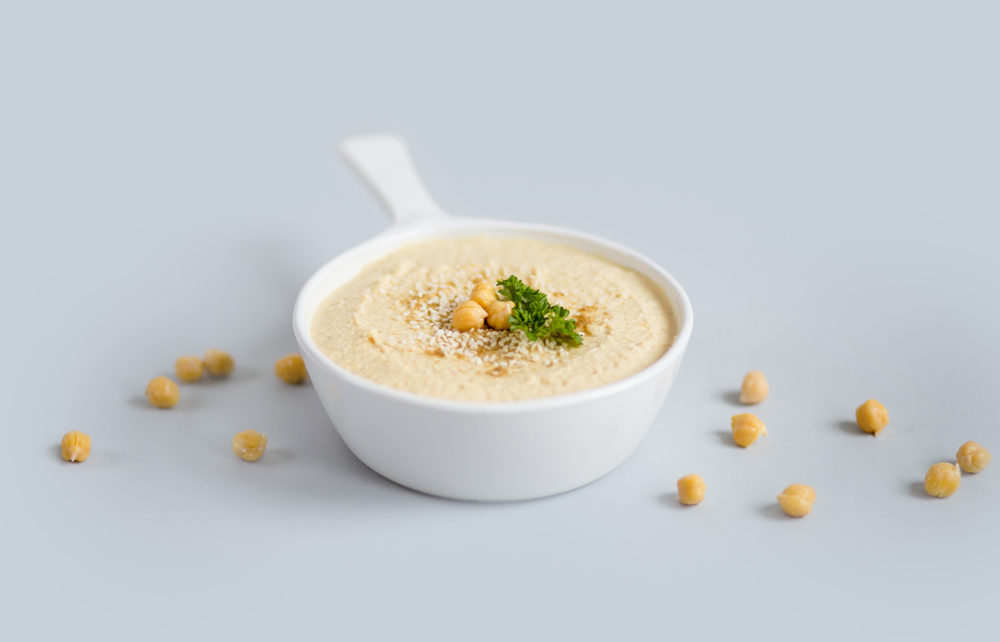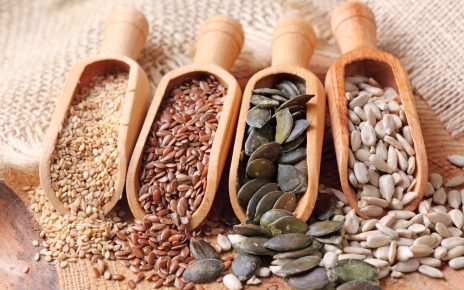Is Hummus keto? Hummus is a very popular dip that is prepared from chickpeas, mashed sesame seeds, lemon juice, garlic, other spices, and olive oil.
These ingredients when blended together make a delicious dip or spread that is commonly consumed in the Middle East. Since one of the major ingredients in hummus is chickpeas, many keto dieters are curious about whether it can be included on keto.
Chickpeas or garbanzo beans have a high-carb content and in a one-cup serving, there are 20 grams net carbs. Other macronutrients contained in each cup of hummus include 24 grams of fats and 15 grams of fiber. This clearly shows that while hummus may be described as a fat-rich food, it also contains many carbohydrates. This suggests that it may not be included on a low-carb diet despite its high-fat content.
Top Reasons To Avoid Hummus On Keto
1. Hummus has high carb content: Remember that the keto diet has restrictions with regard to the number of carbs that can be consumed. Usually, only 20 to 50 grams of carbohydrates are allowed daily. Although, it may be impossible to consume one cup of hummus in one sitting, consuming a few tablespoons of hummus may still affect ketosis. This means that including hummus on keto may not give an individual the chance to consume other foods containing carb throughout the day.
2. Unprocessed hummus still contains legumes: Although unprocessed hummus is better than the processed variants, it is made with chickpeas which are legumes. The chickpeas are the major ingredients in hummus and are usually used as the base during preparation. Legumes are generally not keto-friendly and should be avoided on keto. The reason for this is that they are rich in carbs are contain less fat so their macronutrient profile does not allow their use on a low-carb diet.
3) Processed hummus should be avoided: Just like the unprocessed hummus, processed hummus contains legumes which should not be included on keto. Also, processed hummus as the name suggests may be prepared using processed ingredients that are not keto-friendly. For example, commercially sold hummus may contain vegetable oil and other artificial ingredients that can have a negative impact on overall health.
Keto-friendly Hummus
Just as mentioned, traditional and commercially sold hummus are not keto-friendly as they can potentially halt ketosis. Nonetheless, there is hope for individuals on the keto diet who cannot do without this delicious dip. Instead of purchasing ready-made hummus that is rich in chickpeas, it will be best to prepare keto-friendly hummus at home.
This can be done by replacing the carb-rich chickpeas with vegetables such as avocado, cauliflower, zucchini, and artichoke. Nuts like almonds can also serve as a suitable replacement for chickpeas on keto. The addition of keto-friendly spices to homemade hummus is also essential.
1) Avocado: Unlike chickpeas, avocados are keto-friendly since they contain healthy fats and few carbs. It is also rich in many minerals and vitamins. It is described as a keto superfood and can conveniently replace chickpeas as a base for hummus. Just like chickpeas, the avocado contains fiber so it’s addition to a low-carb diet may help improve satiety and help with weight loss.
2) Cauliflower: This is one of the most versatile vegetables that are available for use on the keto diet. Not only is the cauliflower nutritious with numerous health benefits, but it is also affordable and can be purchased at supermarkets and even online. Unlike chickpeas, the cauliflower is low-carb and it is very easy to prepare hummus with this vegetable.
3) Artichoke: This vegetable is very rich in fiber and is also low-carb so they would make a great addition to the keto diet. Also, part of the fiber in this vegetable is made up of inulin, a type of oligosaccharide that is considered a prebiotic. This means that including artichoke when making hummus or to any diet on keto can help improve gastrointestinal health. Since it is very rich in fiber it may also enhance weight loss by improving satiety.
4) Zucchini: In a cup of zucchini, there are only 3 grams of carbohydrates so it is keto-friendly. It is also versatile hence it can easily replace chickpeas as a base when preparing hummus. It also contains fiber and is a low-calorie vegetable so it may be able to promote weight loss when added to any recipe. Grilled or roasted zucchini can be used in preparing the dip to add extra flavor.
5) Almonds: Almonds are rich in fat and contain very few carbs. The kind of fat contained in almonds is referred to as healthy fats so they are suitable for the keto diet. Almond flour can also be used when making hummus at home, however, it is best to exercise caution when including almonds as a major ingredient in hummus. This is because nuts like almonds are classified as high-calorie foods and should be consumed moderately.
Health Benefits of Keto-friendly Hummus
1. It boosts the supply of healthy fats: Locally-made or homemade hummus which consists of the vegetables or spices mentioned above are a good supply of fat in the body. Therefore, including hummus on the keto diet will prevent a lack of healthy fats that the body requires to reach ketosis. It is important to totally avoid commercial hummus because as mentioned previously, some may contain vegetable oil and ingredients that are not keto-friendly.
2. It is highly satisfying and may help with weight loss: Any individual who starts the keto diet as a means to lose weight must pay attention to the amount of food consumed. On keto, consuming foods rich in fat, low in carbs with high fiber content can be helpful to promote weight loss. The fiber can help prevent the urge to consume food unnecessarily since it promotes satiety for a long period of time.
3. Homemade hummus is versatile: Since homemade hummus is made with vegetables that are versatile, it is right to expect that hummus can be consumed in a variety of ways. It can be used as a side dish on the keto diet or may even be paired with other low-carb keto foods and even snacks.
4. It may help to improve and balance electrolyte levels in the body: The keto flu occurs due to electrolyte deficiency so there is a need to pay close attention to electrolyte levels on keto. Hummus is very rich in micronutrients like sodium, magnesium, and potassium. When hummus is included on keto, it may be able to replenish electrolytes and prevent the keto flu.
Conclusion
Traditional hummus and those that are commercially sold are not keto-friendly as they contain chickpeas which have a high-carb content. Since hummus has become a very popular dip, individuals on the keto diet may like to add it to low-carb recipes. Preparing keto-friendly hummus is quite easy and only requires replacing chickpeas with other ingredients with a high-fat and low-carb content.
Vegetables like avocado, cauliflower, artichoke, and zucchini can easily replace chickpeas as the base in hummus. Nuts like almonds and pecan that generally contain very few carbs and are rich in healthy fats are also a great replacement for chickpeas when preparing hummus.



